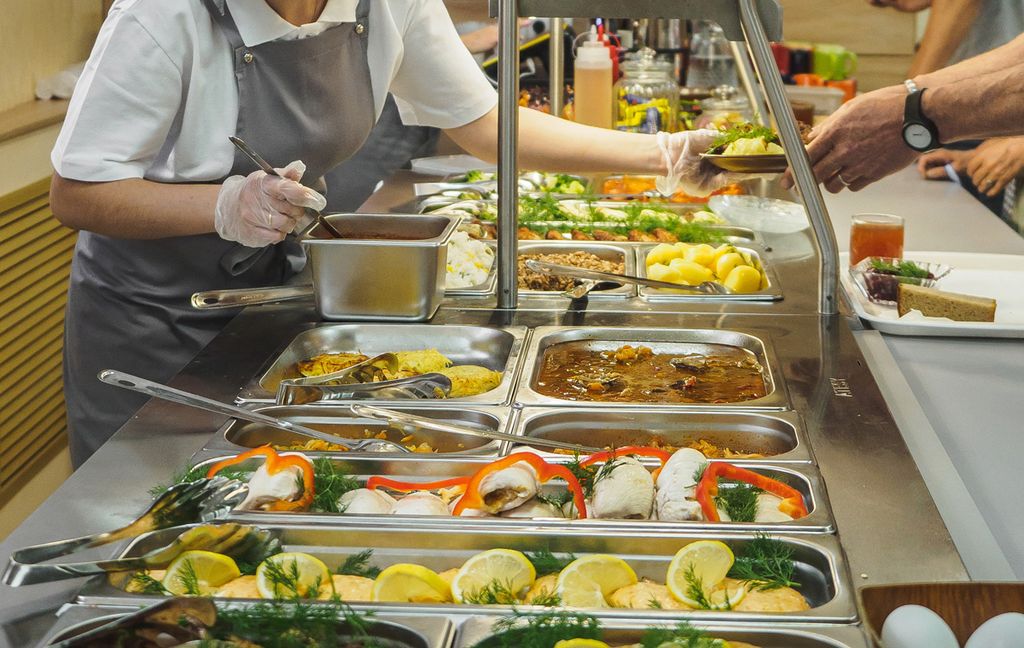With its "BioBitte" initiative, the BMEL has set itself the goal of increasing the share of organic food in public out-of-home catering to 20 percent and more. In order to set a good example itself, the Federal Cabinet decided in August 2021 to increase the share of organic food in federal canteens to 20 per cent by 2025 and to source meat from particularly animal welfare-friendly livestock farming wherever possible.
The Thünen Institute has already investigated the question of the current importance of organic products in communal catering in the Federal Ministry of Food, Agriculture and Consumer Protection (canteens at a total of 15 locations with 13 operators). To this end, the operators were surveyed by telephone in autumn 2020 using a structured questionnaire on the proportion of organic products in their catering facilities. Nine of the 13 operators took part in the survey.
It became apparent that organic products have been used very differently up to now. Four of the nine canteens participating in the survey use organic products in their cooking on a daily basis. Three of them are certified organic and have the legal possibility to label the organic products accordingly. Another kitchen uses organic products several times a week, and two others occasionally. Vegetables, potatoes and fruit are used most frequently; rice and pasta are also used in some cases; meat, on the other hand, is hardly ever used in organic quality.
The survey showed that in the canteen kitchens in the BMEL's portfolio, a significant proportion of the ingredients used already come from organic production. Exact percentages are not possible at present due to the lack of recording systems.
In order to further increase the share of organic products, it would make sense (a) to provide specific information on the use of organic products in the award procedure or in the lease agreement when a new lease is concluded or a lease is renewed, (b) to expand the provision of information on best practice examples, and (c) to further raise awareness of the issue among decision-makers and staff in the awarding bodies and the managers of the canteens.
More information can be found in the 6-page ZöL-report by Anika Bosse and Jürn Sanders (Thünen Institute for Business Administration) from February 2021.









